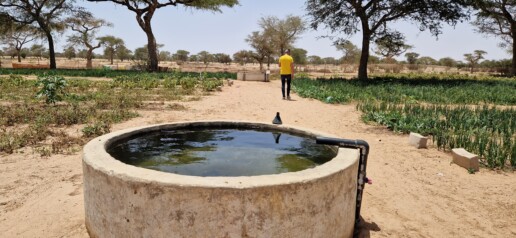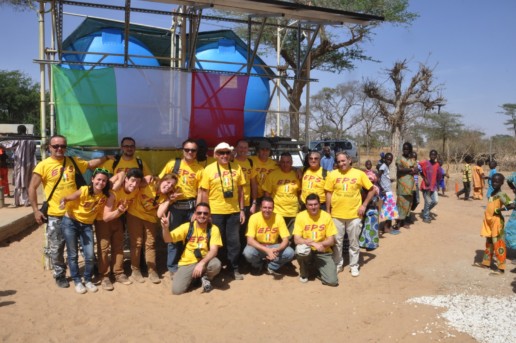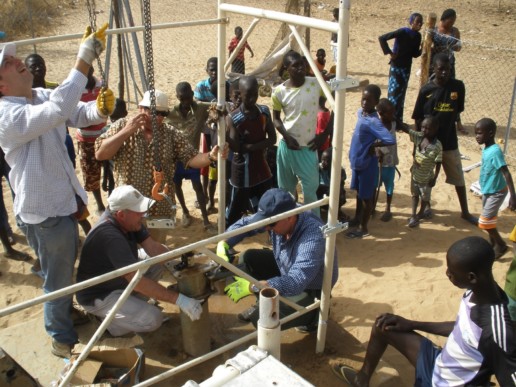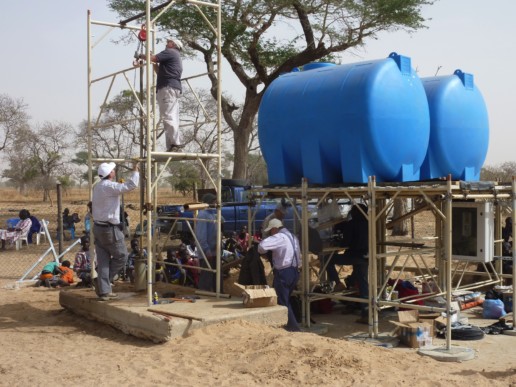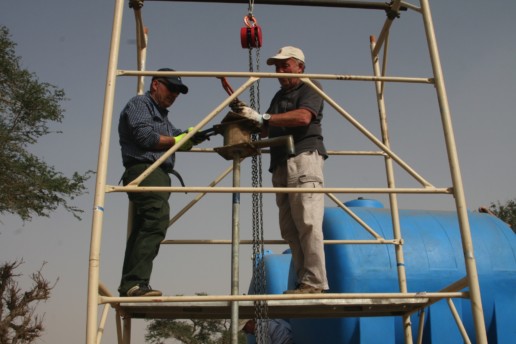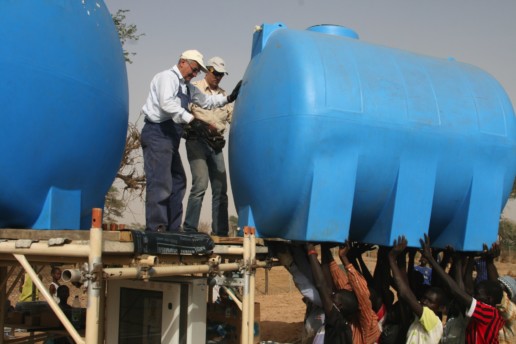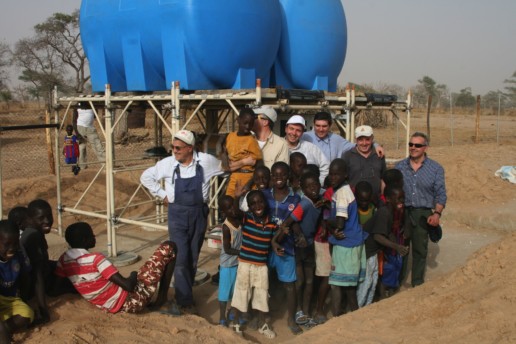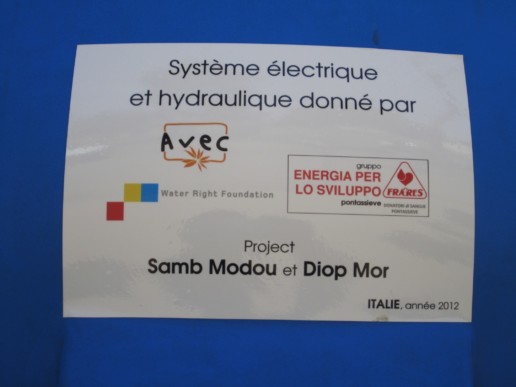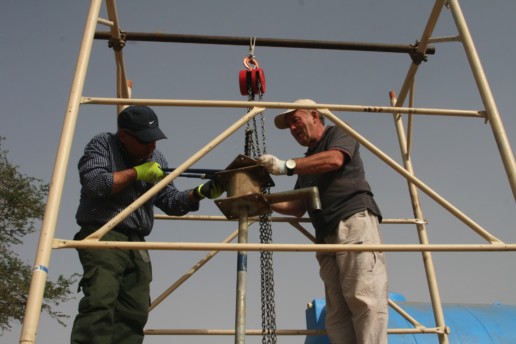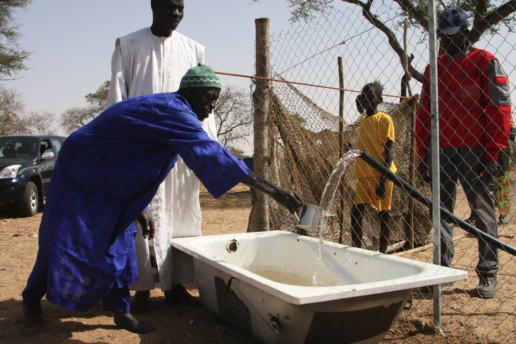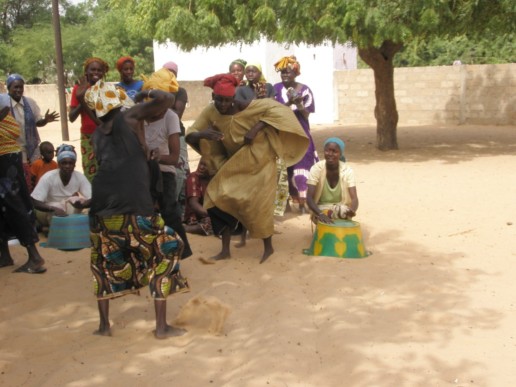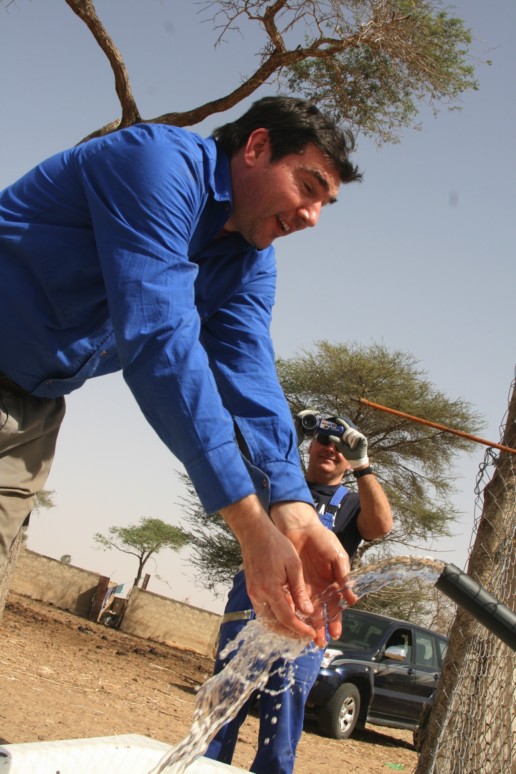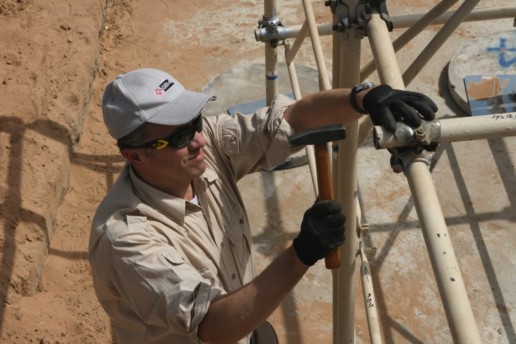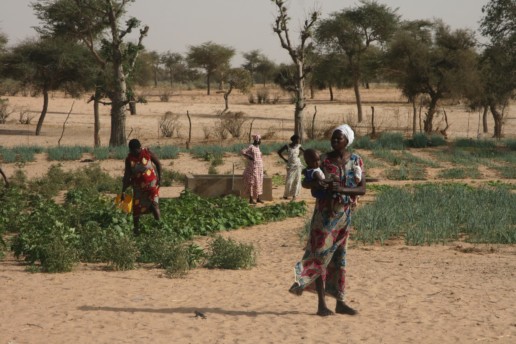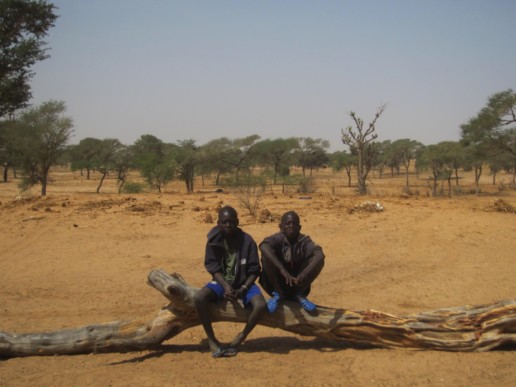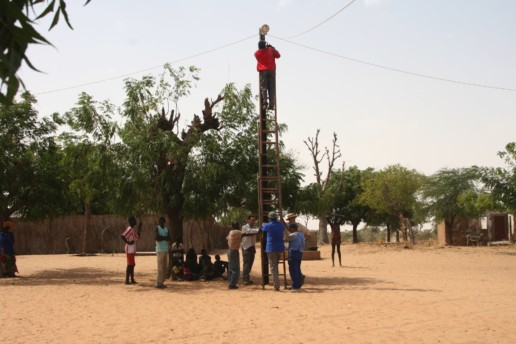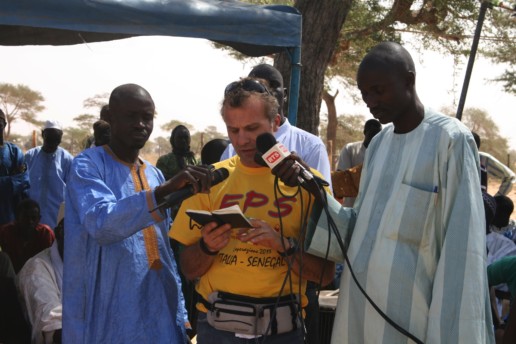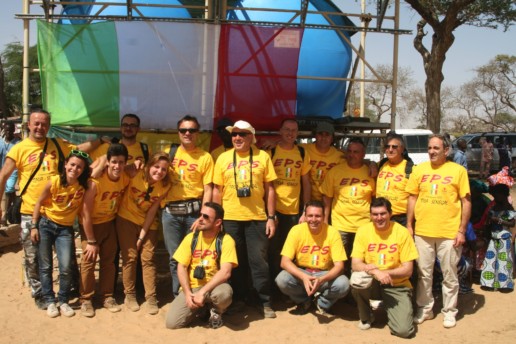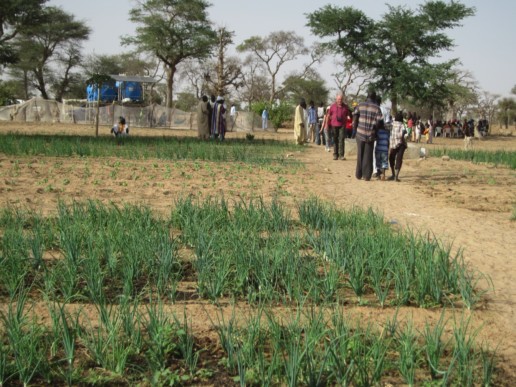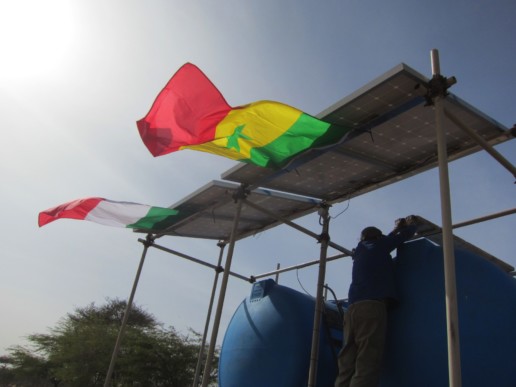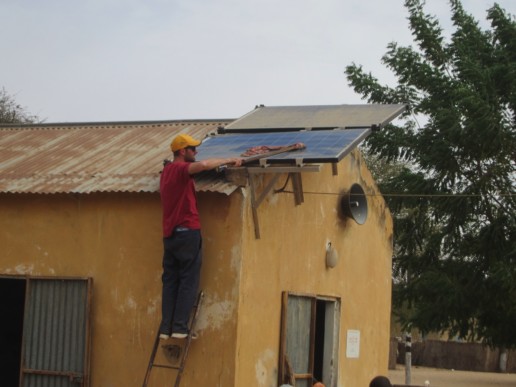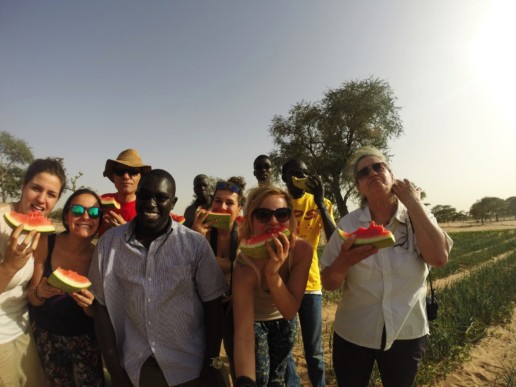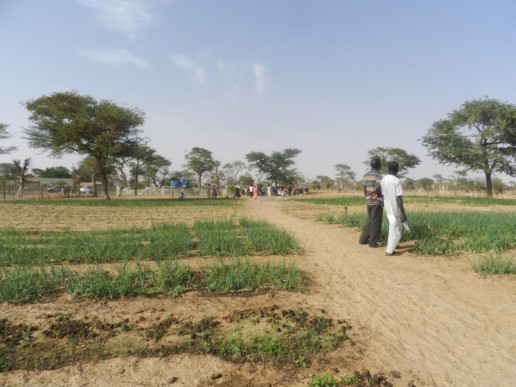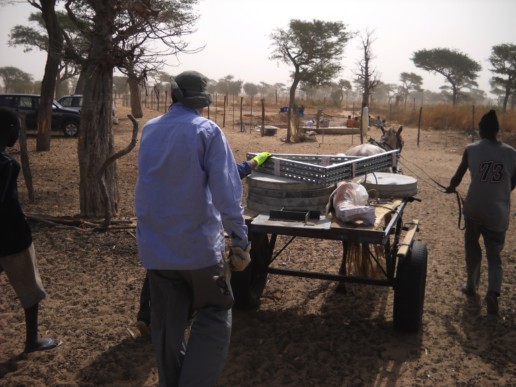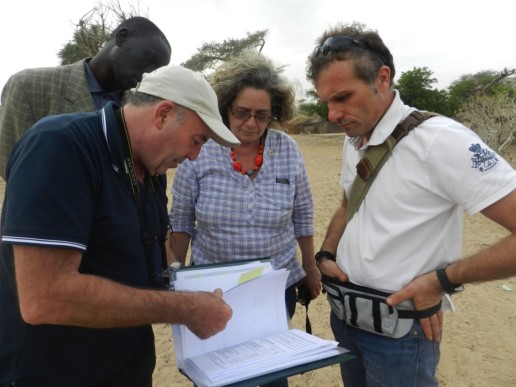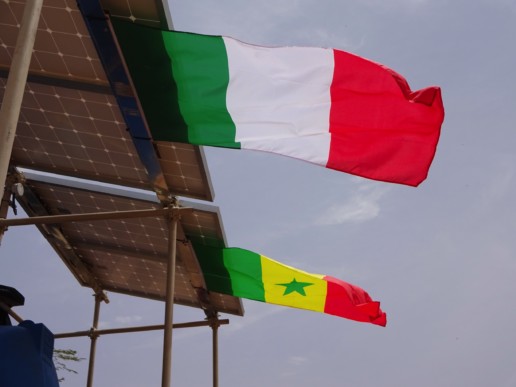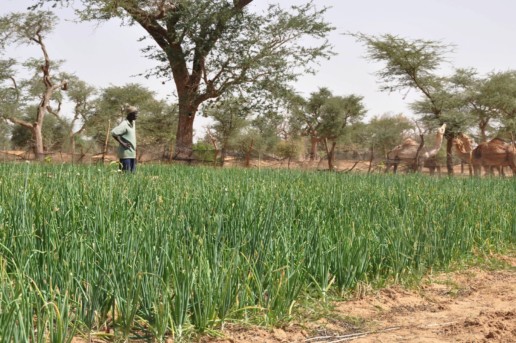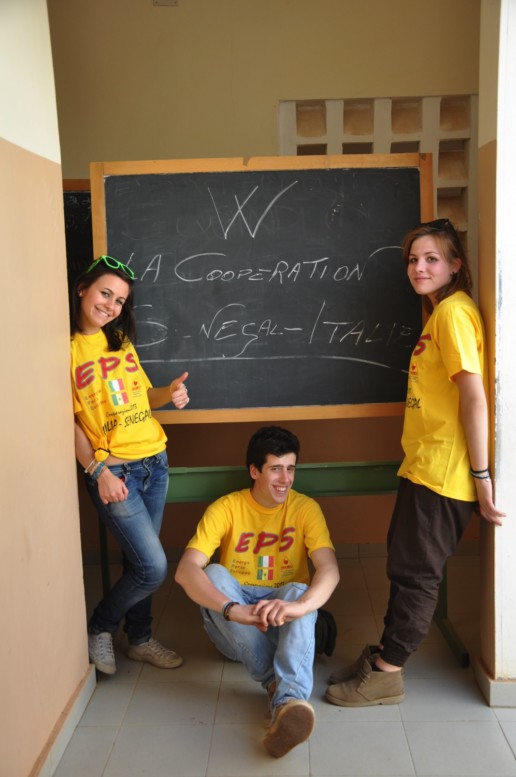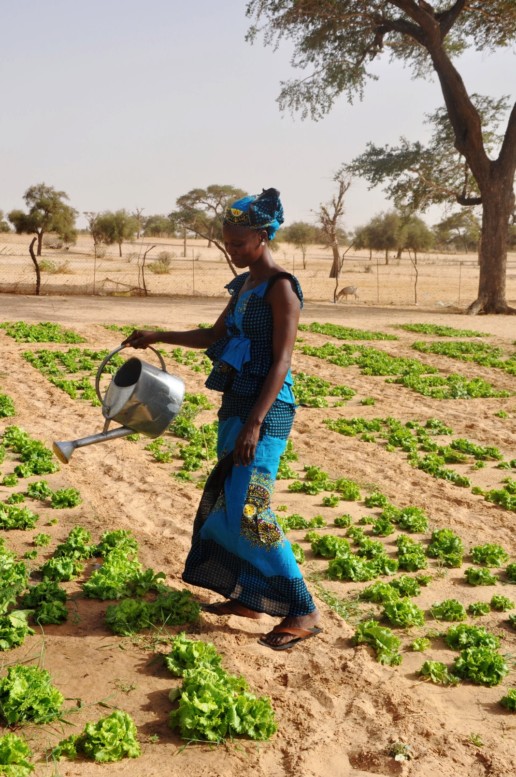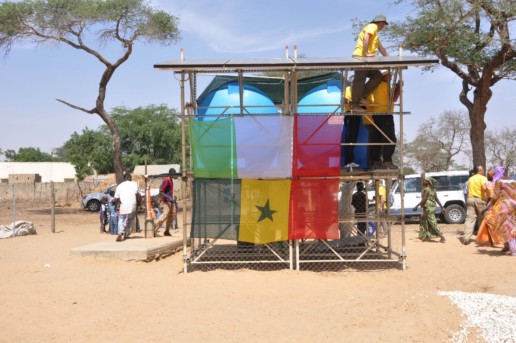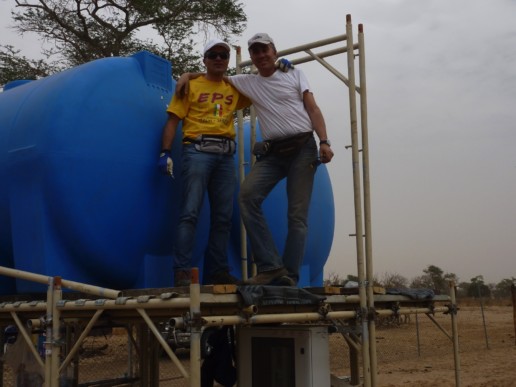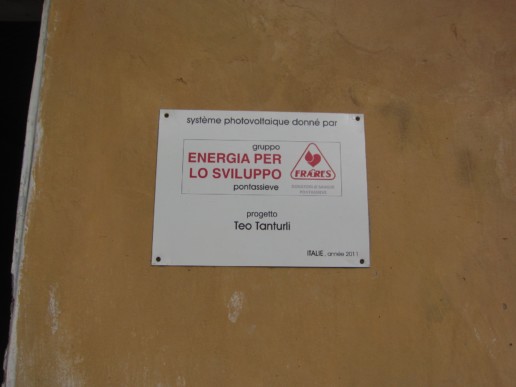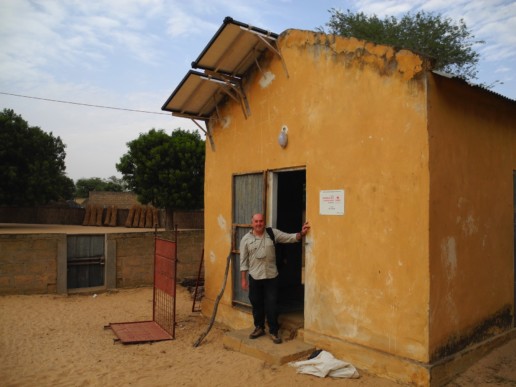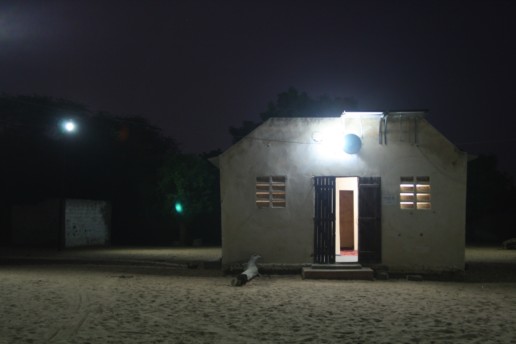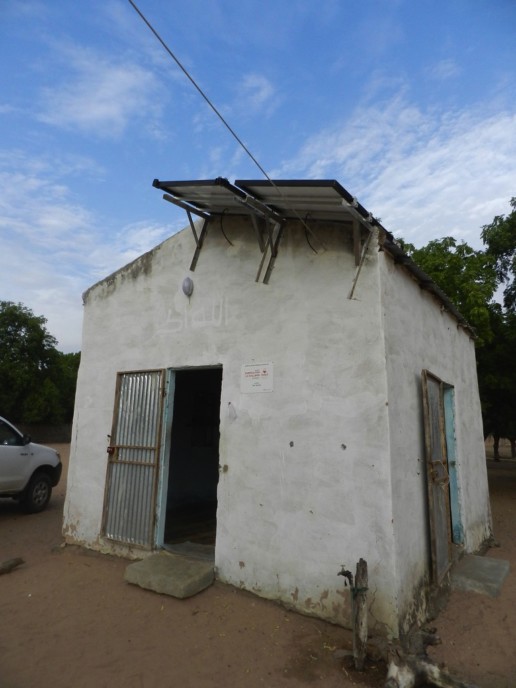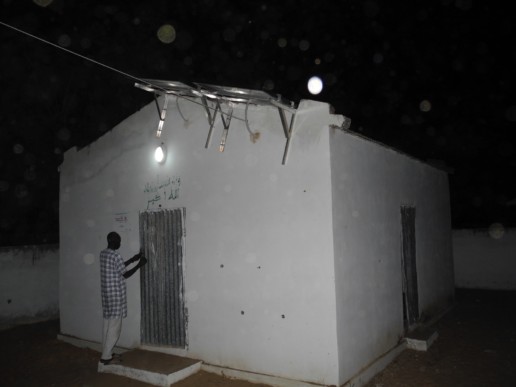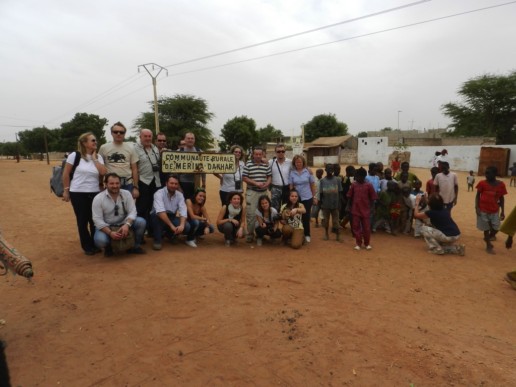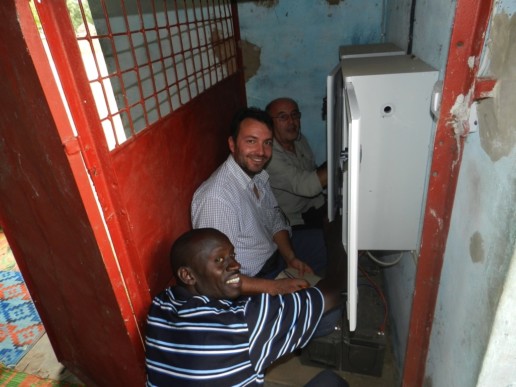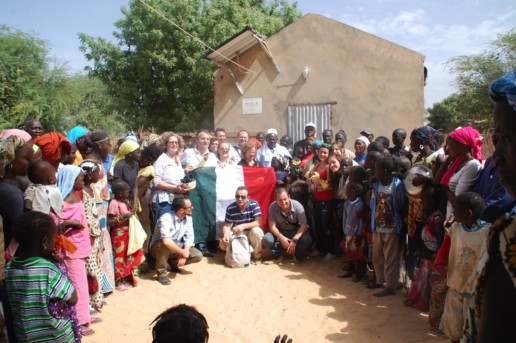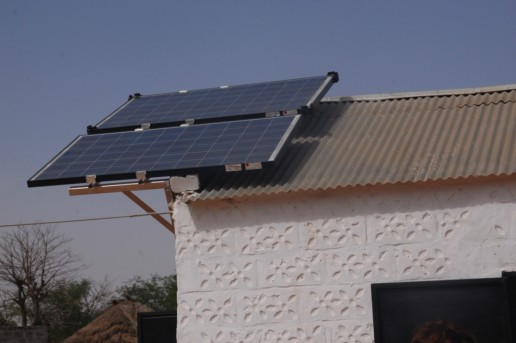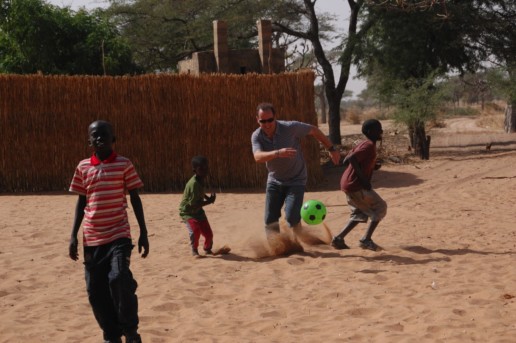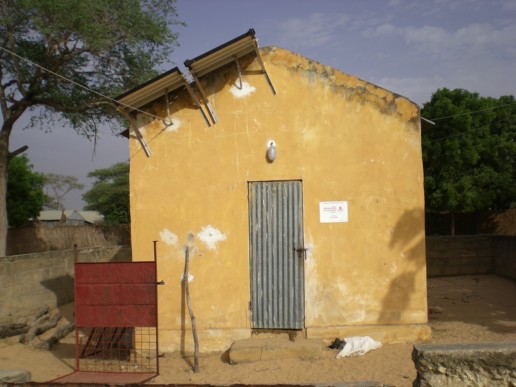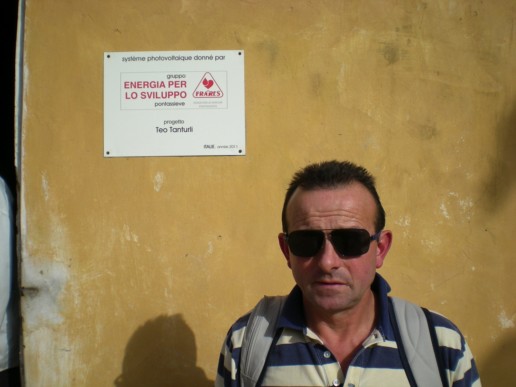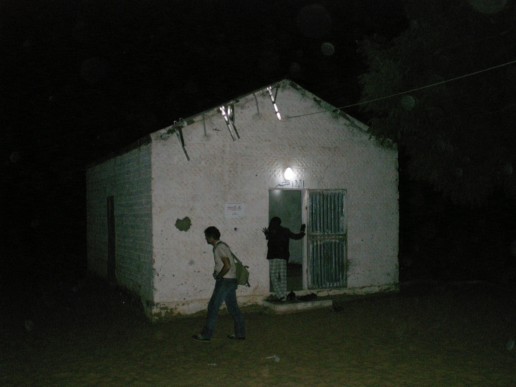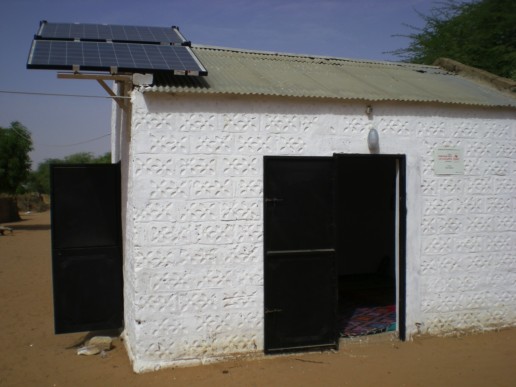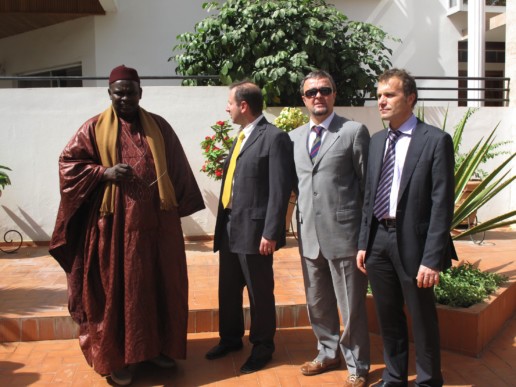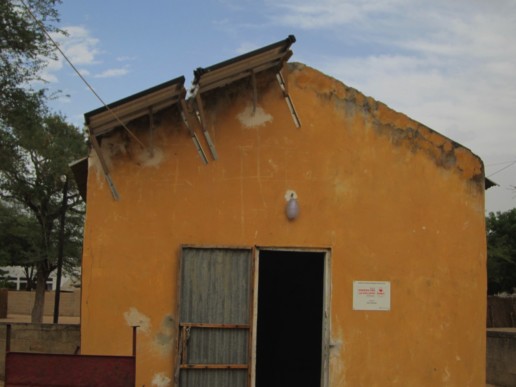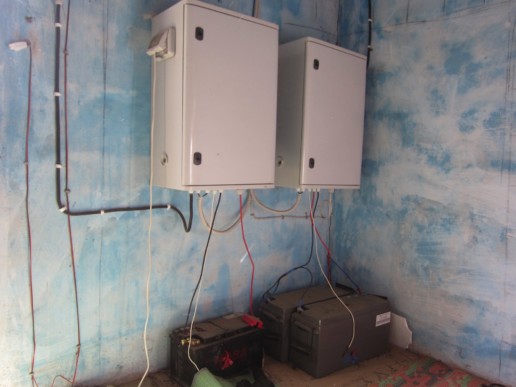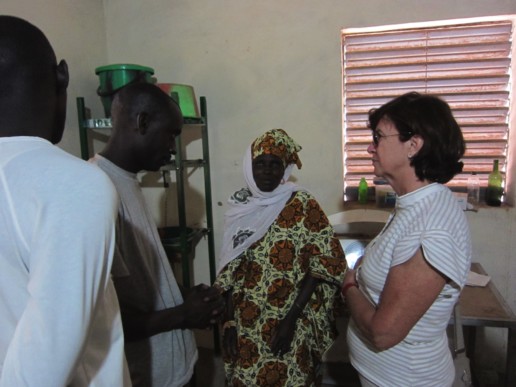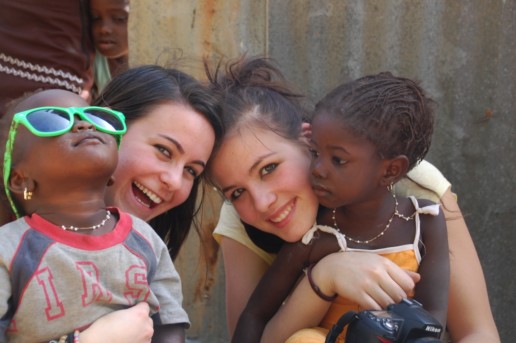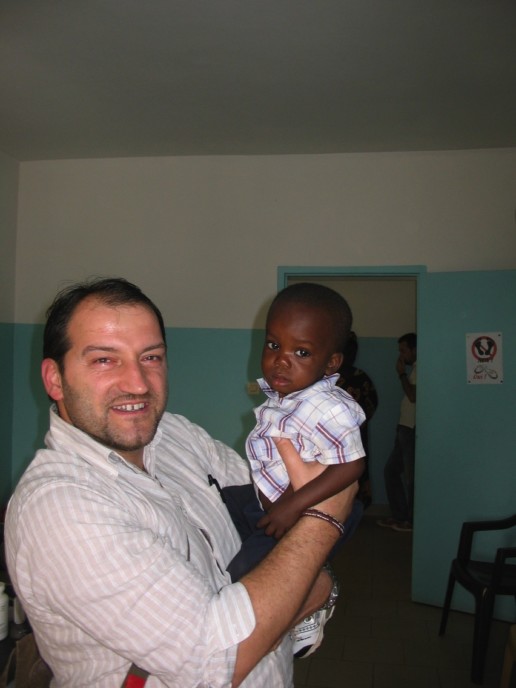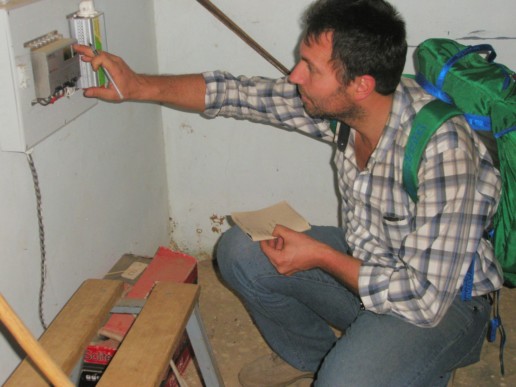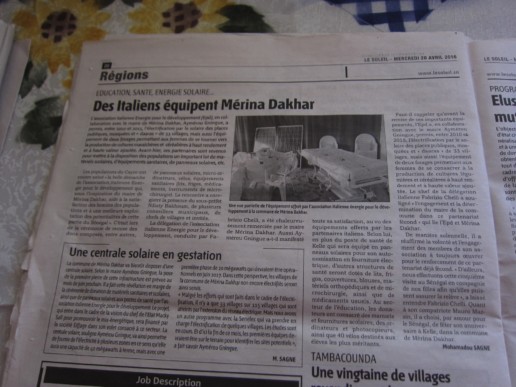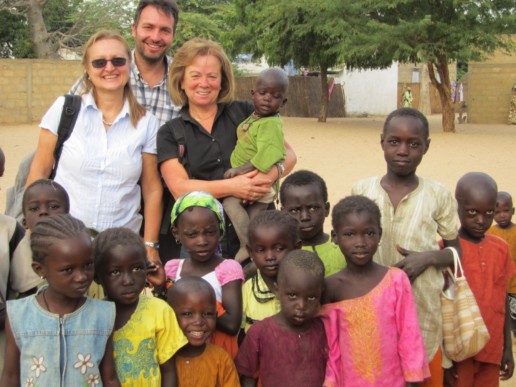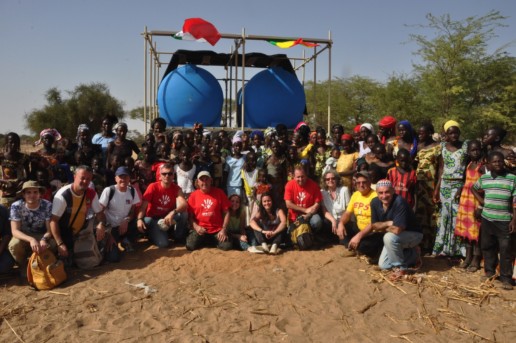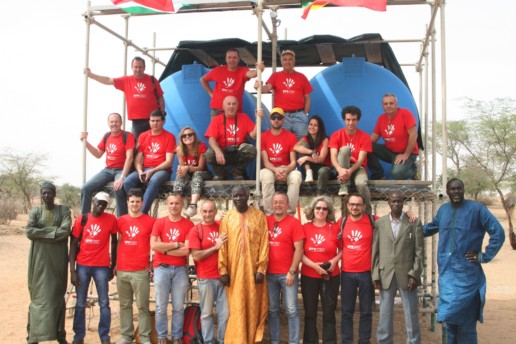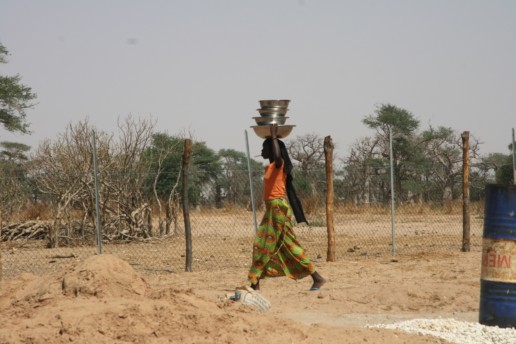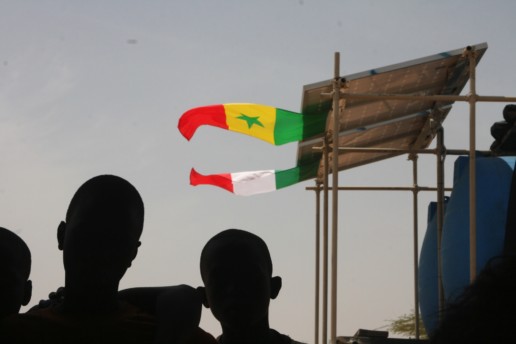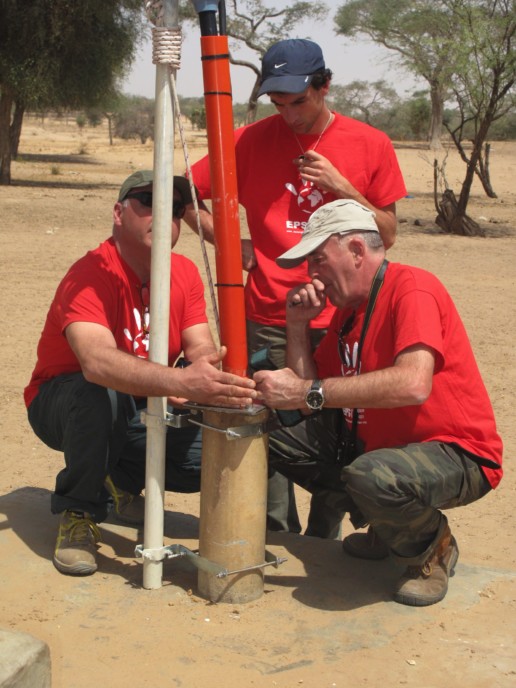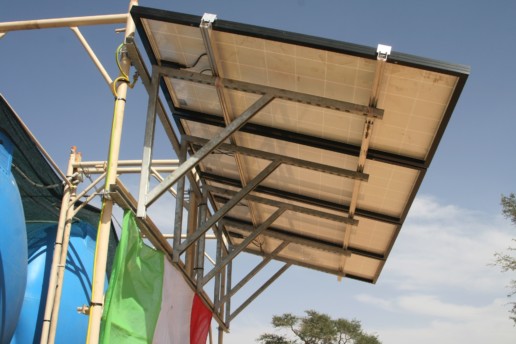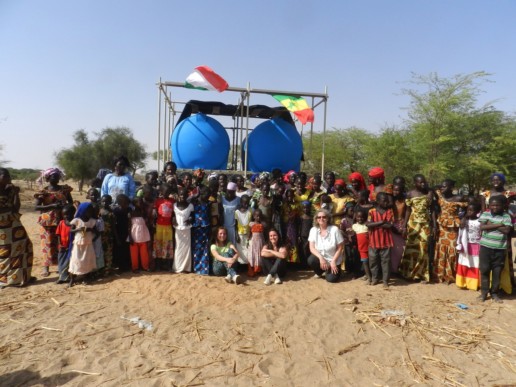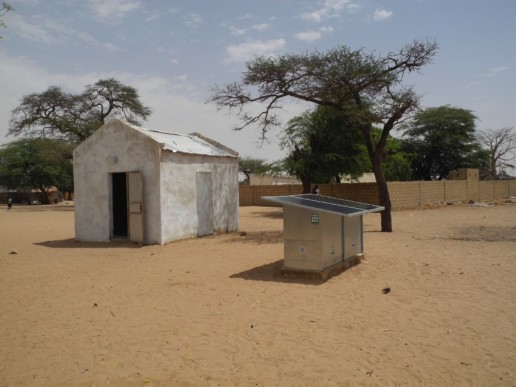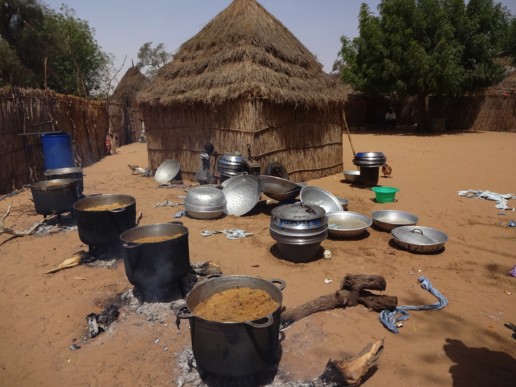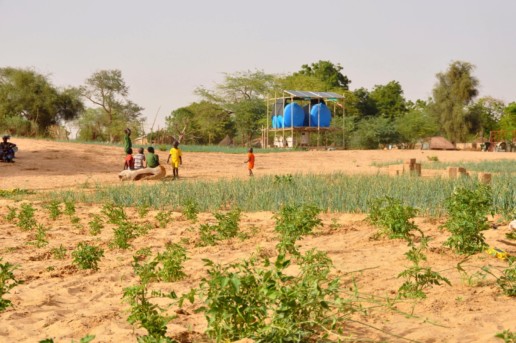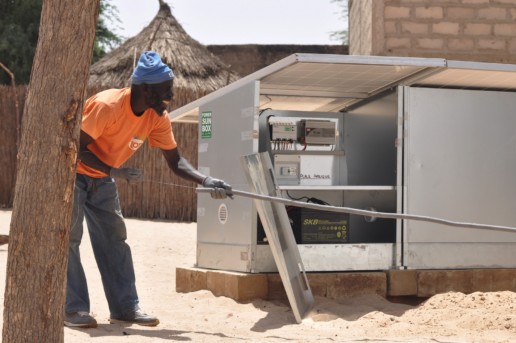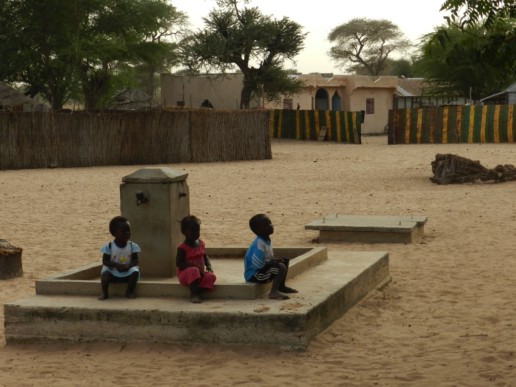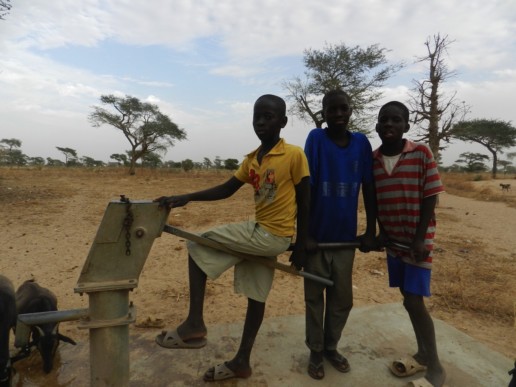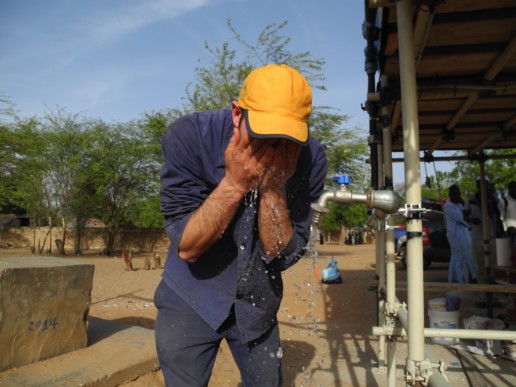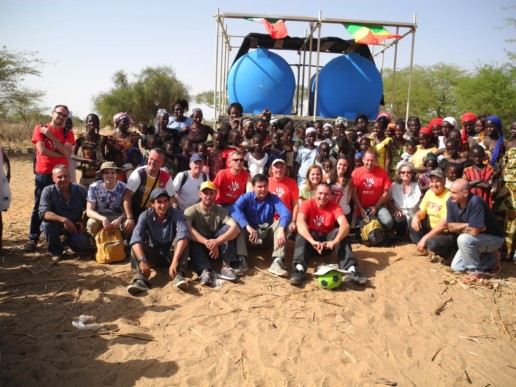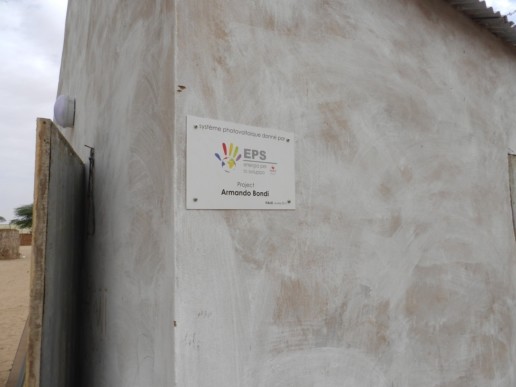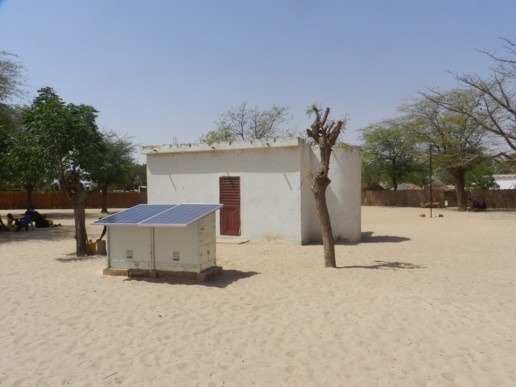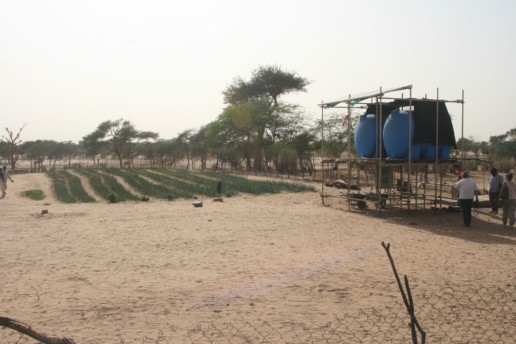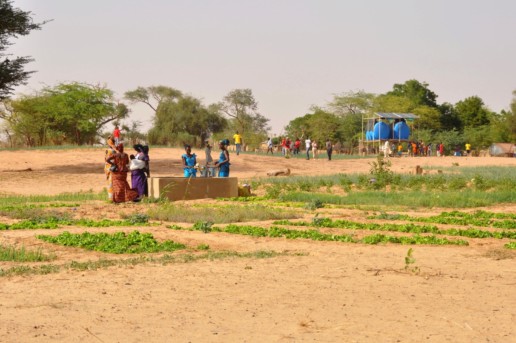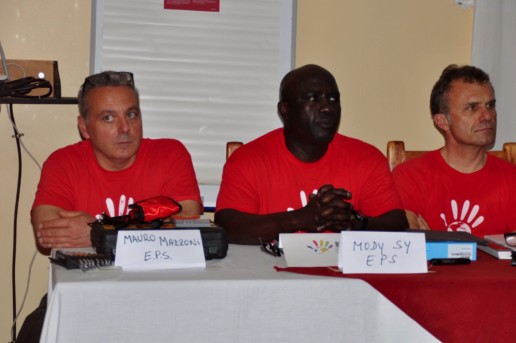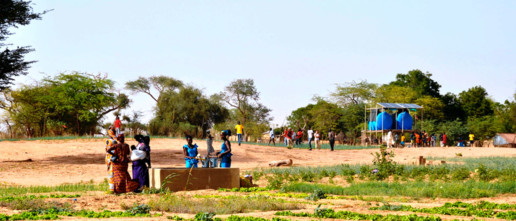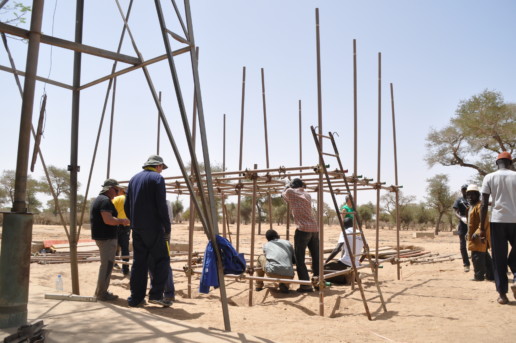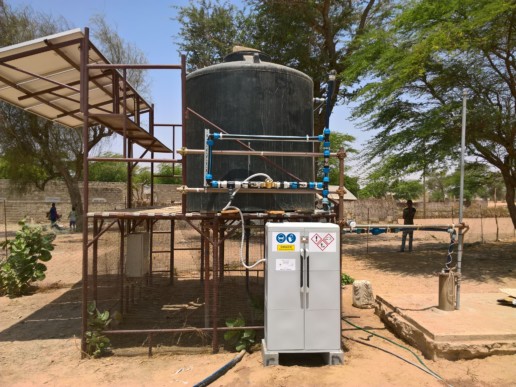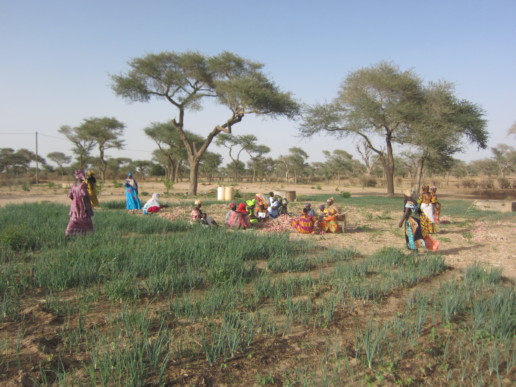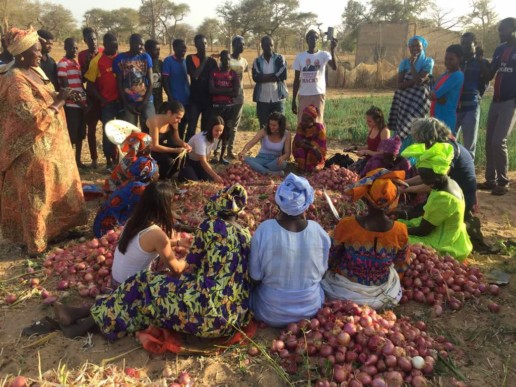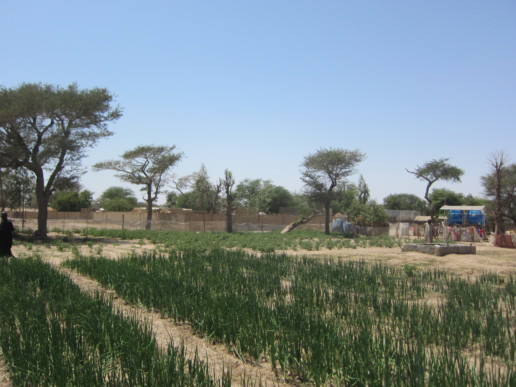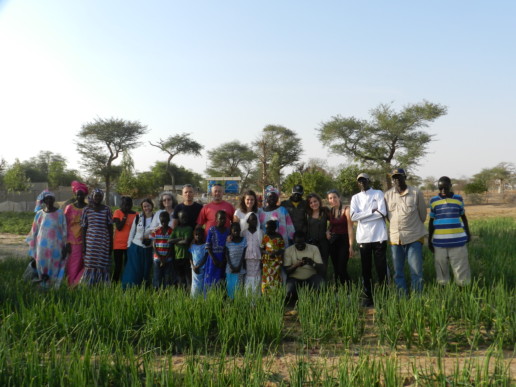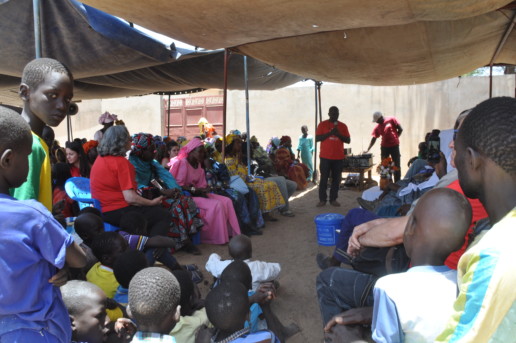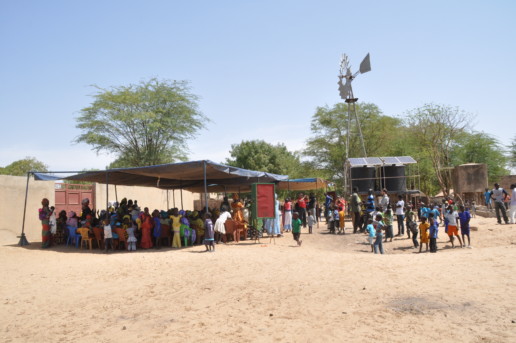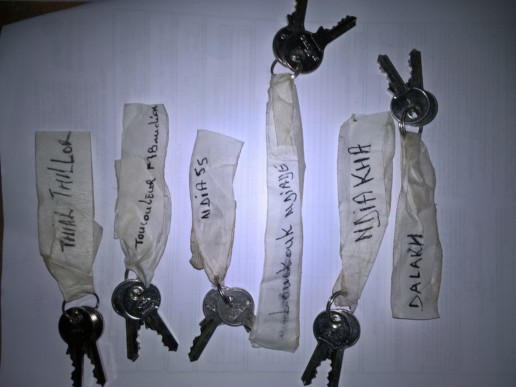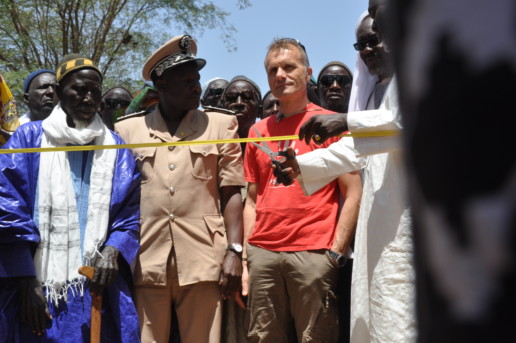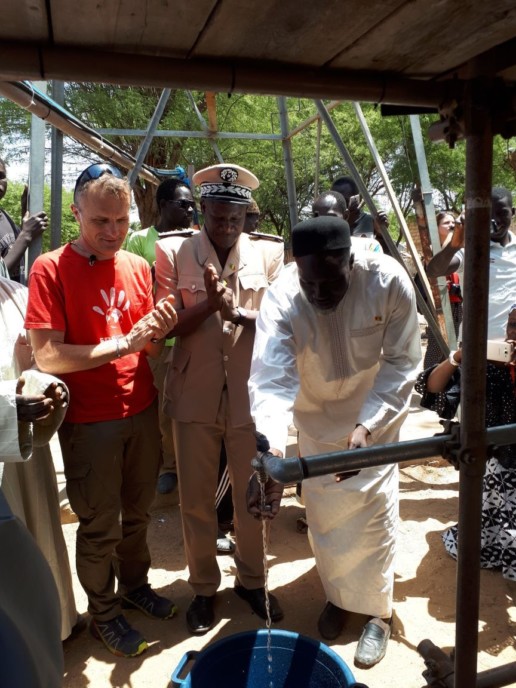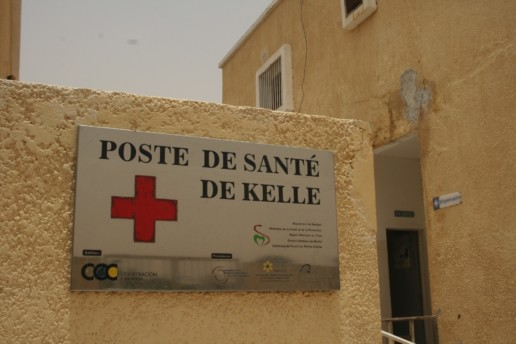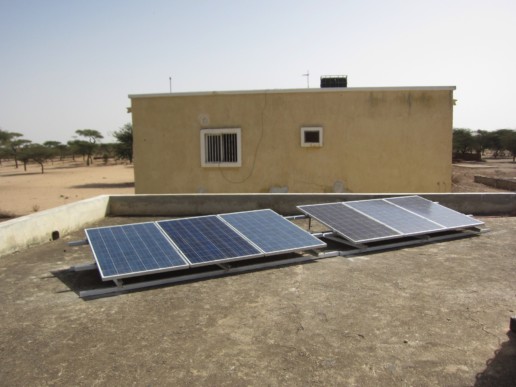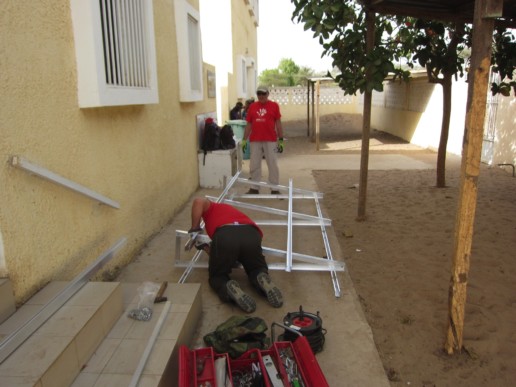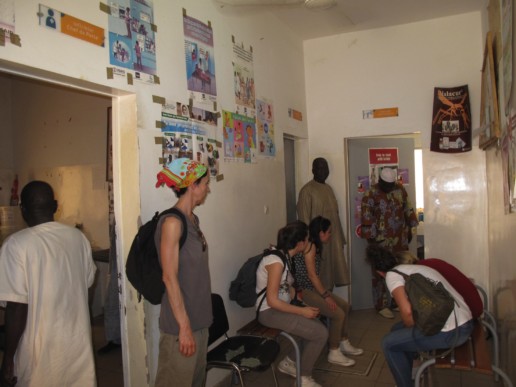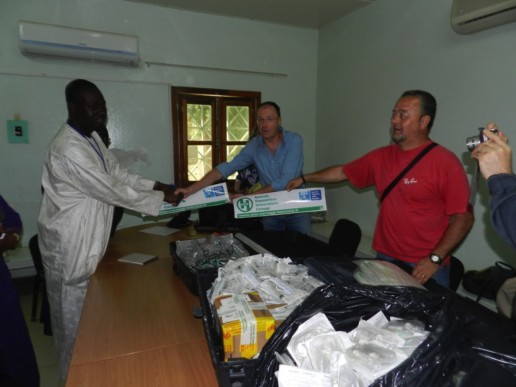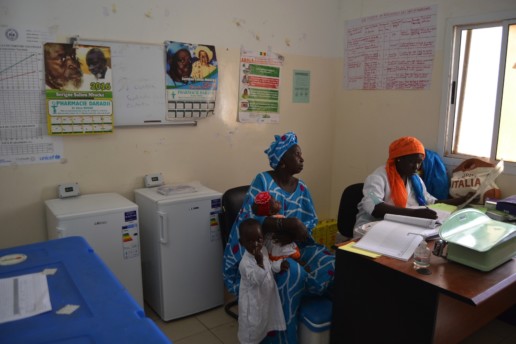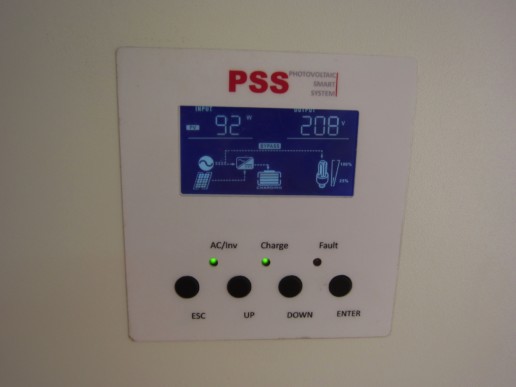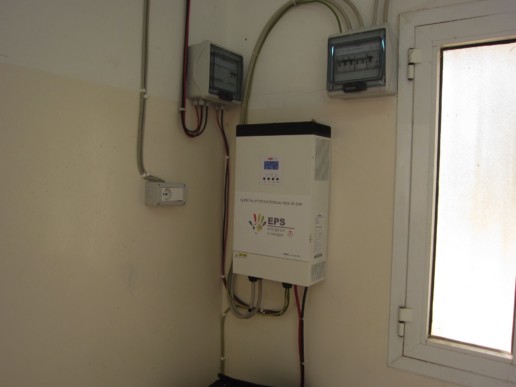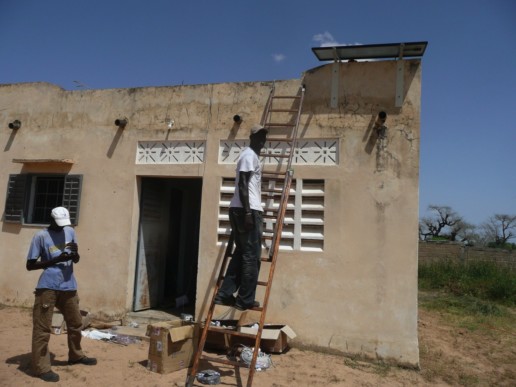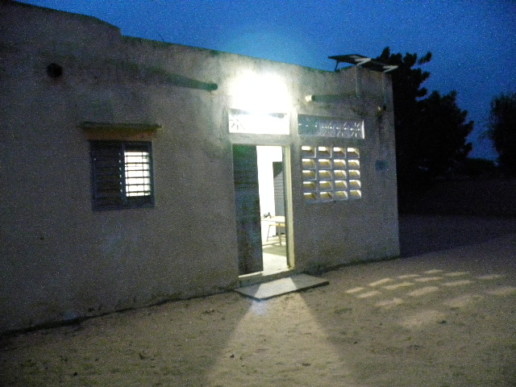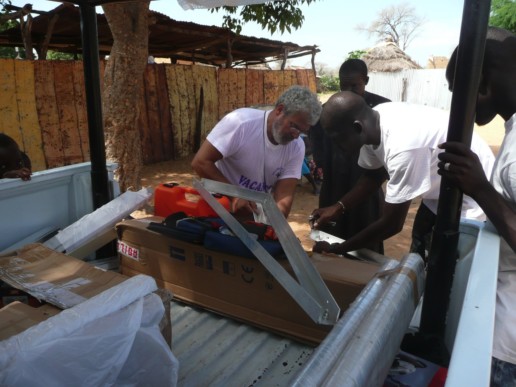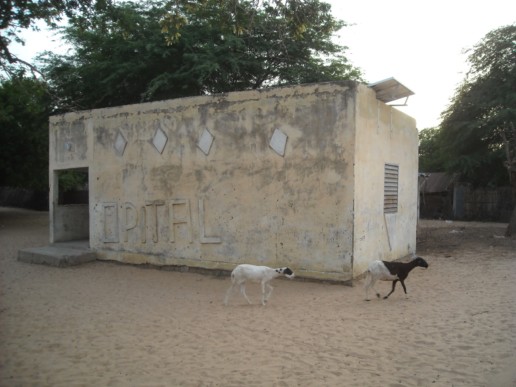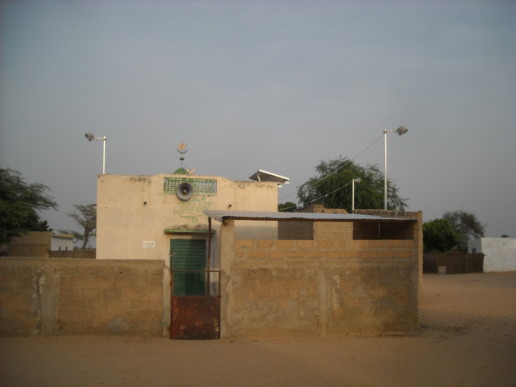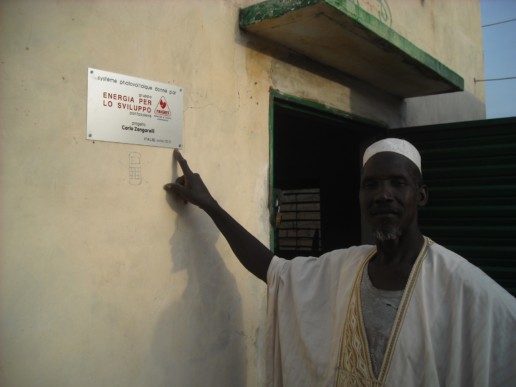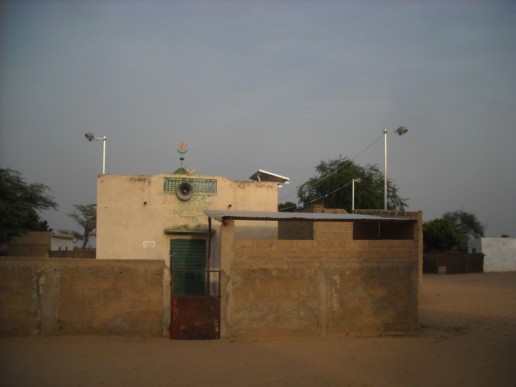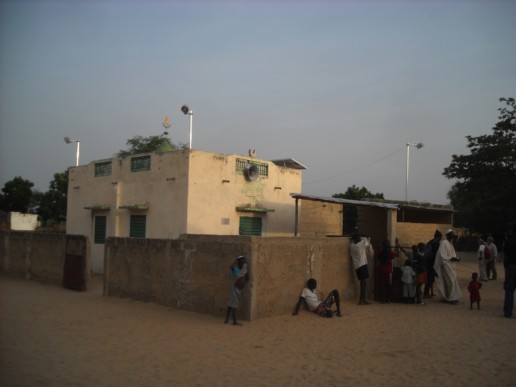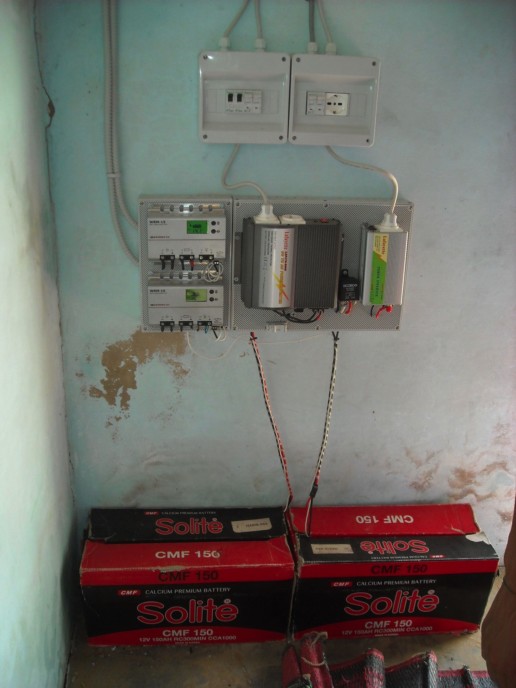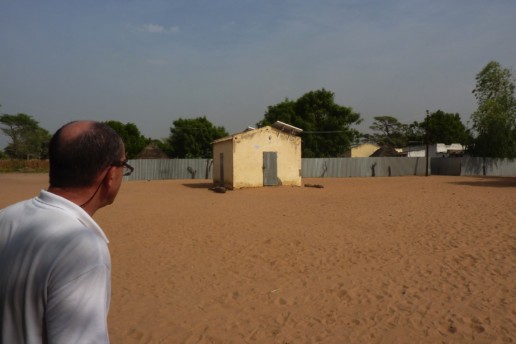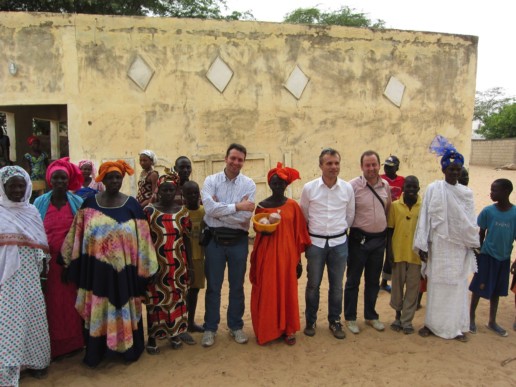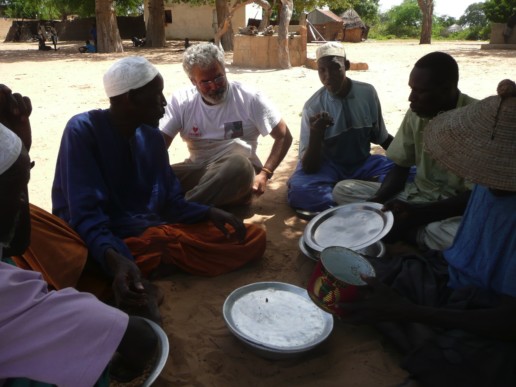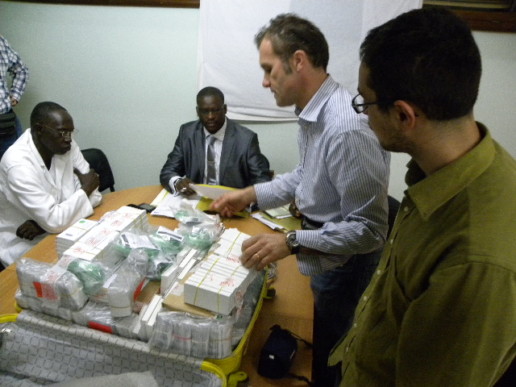Author: Energia Per lo Sviluppo
MorModou Project
MorModou Project
A Solidarity Bridge
| Year: | 2012 |
| Where: | Eleven rural villages in the Municipality of Merina Dakhar, Province of Thies (Senegal), Dalakh (well intervention),Telly, Gade Niandoul, Thienene, Ngninguene, Ndiobene, Koudiane2, Darou Kane, Dalakh 1, Ndiombil, Ndiaby, Ker Dao Gaye |
| Activities: | Installation of eleven photovoltaic plants to supply power for public streetlight and electric plugs for collective usage. Automation of an existing manual well, through photovoltaic. |
The MorModou project is dedicated to the two Senegalese men killed on 13th December 2011 in Piazza Dalmazia (Florence), from the xenophobic gesture of a deranged man. Samb Modou and Diop Mor were just unlucky to cross that man in the street. EPS therefore honored their sacrifice by dedicating them the third project in Senegal, and contributing to strengthen the relationship between the Italian and Senegalese communities. The project initially aimed to install ten photovoltaic plants in ten villages in the Province of Thies, that were completely devoid of any form of energy before the intervention. EPS also accomplished the electrification of a pre-existing manual well to allow the irrigation of a cultivable area nearby the village.
Goals
Installation of eleven photovoltaic plants to provide electricity to external urban areas and small public buildings in every village. The project also envisaged the automation of an existing manual well, so that it could irrigate the cultivable land nearby one of the villages.
Achievements
Eventually eleven plants were installed, extending the electrical supply to eleven villages. The successful electrification of the manual well in the village of Dalak 2 has optimized and increased the water supply; which it is now dedicated to the irrigation and cultivation of one of the adjacent land. The area’s perimeter is also specifically delimited and fenced.
Partners


Povertà energetica: che cos’è? Come combatterla?
L’accesso all’energia è una condizione fondamentale per lo sviluppo. Ad oggi, circa 1,2 miliardi di persone (il 16% della popolazione mondiale) non ha alcun accesso all’energia elettrica. Circa il 95% degli ‘energy poors’ (i ‘poveri di energia’) è concentrato in Africa Sub-Sahariana e nelle zone più povere dell’Asia. Interi villaggi rurali soffrono di una marginalizzazione – non solo geografica per l’assenza di infrastrutture adeguate – ma anche energetica, a causa della mancata connessione alla rete di distribuzione.
La povertà energetica non ha solo conseguenze immediate, come sulle condizioni di vita (scarsa sicurezza domestica, metodi di illuminazione o di generazione di elettricità con metodi alternativi altamente inquinanti o intossicanti, impossibilità di conservare farmaci per la mancanza di refrigerazione o per il personale medico di operare di notte), ma mina anche le possibilità di formazione e di istruzione, di fare impresa, di crescita e socialità. Le maggiori vittime di questa forma di povertà, sono le donne e i bambini. Questi hanno infatti il compito di raccogliere la legna, o l’acqua necessaria per la sussistenza quotidiana, dovendo camminare spesso per lunghi chilometri prima di trovare la fonte – per poi tornare indietro con il carico e dedicarsi alle faccende domestiche. In questa routine basata sulla sussistenza, c’è poco spazio per nuove opportunità di formazione e di emancipazione della figura femminile e per l’istruzione necessaria alla gioventù.
La morfologia, la povertà e l’instabilità politica e delle istituzioni di molti paesi africani rendono inoltre difficile lo sviluppo di una rete elettrica nazionale capillare.
È opportuno quindi intervenire con soluzioni off-grid (non connesse con la rete ed in grado di fornire elettricità autonomamente), alimentate da una risorsa gratuita e di facile fruizione, come l’energia solare. Favorendo lo sfruttamento delle risorse rinnovabili, è possibile inoltre contribuire ad abbattere le emissioni di CO2 e contrastare quindi il cambiamento climatico.
Energia Per lo Sviluppo, attraverso la realizzazione di impianti fotovoltaici di ultima generazione e l’automatizzazione di pozzi manuali già presenti sul territorio, vuole quindi contrastare la povertà energetica, contribuendo al raggiungimento dell’accesso universale all’energia.
Solo assicurando energia pulita, economica e moderna sarà possibile iniziare un circolo virtuoso fatto di opportunità, crescita, sviluppo ed emancipazione per i Paesi meno sviluppati.
Carbon Credits and Energia per Lo Sviluppo
The Antonio Giaffreda Project distinguishes itself for the quality and the extent of benefits that will bring to the local population, as well as for the innovative design approach establishing a model of advanced international cooperation. While enabling the certification of Carbon Credits, it also creates benefits for the environment.
Carbon Credits’ stocks, officially recognized by an authorized international body, are issued in response of interventions aiming to reduce CO2 emissions in the atmosphere, and to improve the social and economic conditions of developing countries’ populations. Carbon Credits produced by such interventions are issued for seven years after the implementation of the project and can be bought by virtuous companies, undertaking a reduction of their CO2 emissions. Those companies, after having reduced the emissions of their own facilities (installing photovoltaic systems, electric cars, etc.), can purchase Carbon Credits and contribute further to global emission reductions.
Energia per lo Sviluppo’s pumping plants will be equipped with a water treatment system that will allow the users not to boil water before drinking anymore. The water purification system will be powered by photovoltaic – with zero impact, wood savings and therefore zero CO2 emissions in the atmosphere. Further to three pumping plants – that will be implemented soon – EPS has also included in the project the purification of two existing wells, as well as a third plant built autonomously in 2016 by the Municipality of Merina Dakhar.
The production and selling of Carbon Credits will allow EPS to fund and carry out many more interventions in the years to come. This innovative model of cooperation, which has just few similar examples in Italy, makes us even prouder of what we do.
Learn more at:
– Antonio Giaffreda Project
– Carbon Credit Wikipedia
Visita Guidata all’Abbazia di Vallombrosa
Visita Guidata
all’Abbazia di Vallombrosa
Sabato 28 Ottobre
PROGRAMMA
Ore 15: Ritrovo presso l’Abbazia di Vallombrosa. Visita guidata con personale specializzato.
Ore 17: Merenda presso l’ex Segheria dell’Abbazia (con schiacciata, affettati e torte fatte in casa)
QUOTA DI PARTECIPAZIONE
18€ a persona (visita e merenda) Gratis per bambini sotto i 12 anni
DOVE
Loc. Vallombrosa, 115, 50066 Vallombrosa, Reggello (FI)
PRENOTAZIONI
Per email all’indirizzo:
info@energiaperlosviluppo.org
Telefonicamente a:
Elisabetta (380-3037562) o Laura (347-0005158)
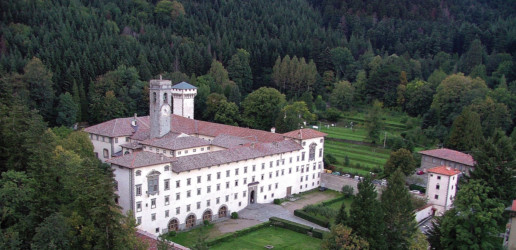
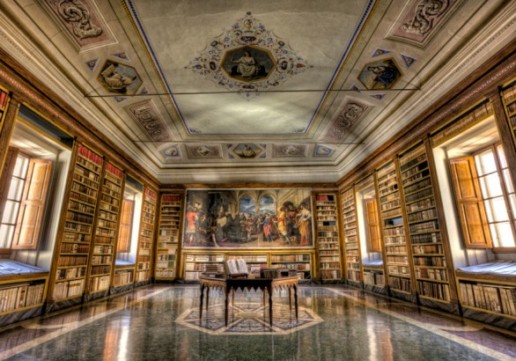
MorModou Project
MorModou Project
A Solidarity Bridge
| Year: | 2012 |
| Where: | Eleven rural villages in the Municipality of Merina Dakhar, Province of Thies (Senegal), Dalakh (well intervention),Telly, Gade Niandoul, Thienene, Ngninguene, Ndiobene, Koudiane2, Darou Kane, Dalakh 1, Ndiombil, Ndiaby, Ker Dao Gaye |
| Activities: | Installation of eleven photovoltaic plants to supply power for public streetlight and electric plugs for collective usage. Automation of an existing manual well, through photovoltaic. |
The MorModou project is dedicated to the two Senegalese men killed on 13th December 2011 in Piazza Dalmazia (Florence), from the xenophobic gesture of a deranged man. Samb Modou and Diop Mor were just unlucky to cross that man in the street. EPS therefore honored their sacrifice by dedicating them the third project in Senegal, and contributing to strengthen the relationship between the Italian and Senegalese communities. The project initially aimed to install ten photovoltaic plants in ten villages in the Province of Thies, that were completely devoid of any form of energy before the intervention. EPS also accomplished the electrification of a pre-existing manual well to allow the irrigation of a cultivable area nearby the village.
Goals
Installation of eleven photovoltaic plants to provide electricity to external urban areas and small public buildings in every village. The project also envisaged the automation of an existing manual well, so that it could irrigate the cultivable land nearby one of the villages.
Achievements
Eventually eleven plants were installed, extending the electrical supply to eleven villages. The successful electrification of the manual well in the village of Dalak 2 has optimized and increased the water supply; which it is now dedicated to the irrigation and cultivation of one of the adjacent land. The area’s perimeter is also specifically delimited and fenced.
Partners


Teo Tanturli Project
Teo Tanturli Porject
For a brighter future
| Year: | 2011 |
| Where: | Ten rural villages in the Municipality of Merina Dakhar, Senegal Thiekene, Thiekeir, Koudiane, Keur Djadie, Nguiguiss Tibo, Keur Thiare, Loucouck Ciss, Loyene Niock, Thiounene, Loucouc Fall Off |
| Activities: | Installation of ten photovoltaic plants to supply power for public streetlight. |
EPS’s second project is dedicated to the memory of Teo Tanturli, a young nineteen years-old man who sadly passed away because of a tragic road accident. Teo was full of life, happy and joyful but at the same time very responsible. He knew how to love the other, and the others always loved him. This is why all of his friends, water polo and school – mates did not hesitate to contribute to this project, giving EPS a great support and hope for the future. EPS has therefore been able to install ten photovoltaic plants in ten rural villages in the Municipality of Merina Dakhar.
Once this project was concluded, EPS placed some commemorative plaques, so that Teo’s memory could remain alive even far from home. Also the villages’ inhabitants, who have never met Teo, can now be grateful to him for this new supply of electricity.
Goals
The aim of the project was to improve the local population’s living conditions through the installation of ten photovoltaic plants that could guarantee public lighting in the outskirts of each village, of some schools and of a small health-center (Case de Santé ) used to perform first aid assistance and where local women give birth.
Achievements
Thanks to this intervention, the villages’ inhabitants could finally enjoy the light of the street lamps in the evening; prolonging their activities such as reading, working, playing, studying, etc even at night.
The illumination of the health post, although it is not attended by professional doctors, has led to an improvement of the community’s health conditions, as it was possible to operate with good visibility even at night.
Total beneficiaries of Teo Tanturli’s project were 3257 people: 1104 men, 917 women and 1346 among young people and children.
Partners

Armando Bondi Project
Armando Bondi Project
From Words to Action
| Year: | 2014 – 2015 |
| Where: | Eleven rural villages in the municipality of Merina Dakhar, Senegal Bar Diai, Dalakh 2, Darou Thiam, Diocese Sathiam, Gouye Ndioro Babacar, Kane, Keulene, Loyene Mbar, Merina Thioune, Sine Macoumba, Tibar, Loucouck (Well construction) |
| Activities: | Installation of eleven photovoltaic plants to supply power for public streeghtlight. Electrification of an existing manual well, through photovoltaic. |
Armando, a genuine Milanese, joined the EPS group in Spring 2010, shortly after his foundation. Armando has been crucial for EPS, because of his long professional experience, as well as in the international cooperation. Armando taught many important instructions and notions, which have all been treasured to make the best of all the activities. He immediately became a friend and a milestone for EPS: as soon as the interventions of the first “Carlo Zangarelli” project were defined, Armando volunteered to build the photovoltaic plants in loco and to train a technician that could become the reference point in Senegal. Unfortunately, in the following years Armando fought with a terrible disease that he had to surrender in November 2013.
The project comprised the construction of eleven photovoltaic plants in eleven rural villages completely deprived of electricity. Through the usage of photovoltaic, EPS has also automated an unused manual well to increase water supply and allow crops’ cultivation.
Goals
The project had two main objectives: to implement eleven photovoltaic plants to supply public street lamps at the service of rural communities; as well as the electrification through PV of an existing manual well, unexploited because of poor extraction capacity. The well’s automation allowed the irrigation of a cultivable land.
Achievements
All the interventions planned have been constructed and welcomed with great enthusiasm by the local communities; as they could enjoy the benefits of having electricity in public spaces. The automated well now allows the extraction of about 10,000 liters of water to be used for the irrigation of 5,000 sq m cultivable land, designated to grow vegetables. All agricultural activities are entrusted to a community of women, specifically trained by a local partner agronomist, Lamine Diouf. It is their responsibility to decide on the most suitable crops, not only for subsistence, but also to be sold in the market and in new commercial channels.
Antonio Giaffreda Project
Antonio Giaffreda Project
A sustainable and virtuous circle
| Year: | 2017 – 2018 |
| Where: | Five rural villages in the municipality of Merina Dakhar, Thies, Senegal |
| Activities: | Update and automation of five manual wells thanks to the introduction of photovoltaic. Establishment of agricultural cooperatives composed by women that deal with farming and trading of their products. |
After seven years of activity and 36 successfully electrified villages, EPS has decided to start a new ambitious challenge: transforming five manual wells into modern ones. The new wells, powered by photovoltaic, allow the cultivation of about five hectares.
This fifth project is dedicated to Antonio Giaffreda, founder of the company MEF – Distribuzione Materiale Elettrico, based in Florence. Antonio sadly passed away after struggling with a serious illness. The project, strongly wanted and supported by his family and the Antonio Giaffreda Foundation, wishes to honor and remember a man who, with his capability and great heart, has built not only an important company, but also a unique family with his employees.
Goals
The aim of the project is to build five wells in five different villages, accessible also by neighboring communities, so to reach about 5,000 people. Each well is able to ensure the extraction of 10,000 Lt of water per day and thus encourage the cultivation of five hectares of land. The preliminary morphological study also helps to preserve the aquifer from the risk of depletion.
The agricultural activities’ management will be entrusted to women’s cooperatives, specifically trained by the local agronomist, Lamine Diouf. It will be their task to identify the most strategically suited crops, not only to meet the minimum level of subsistence, but also to be sold in different commercial channels.
Achievements
The five wells have been successfully constructed, so to supply 50,000 liters of potable water every day to 5 different villages and foster the cultivation of nearby fields. As originally planned, agricultural activities have been assigned to women of local communities, duly trained and organized into cooperatives. Agricultural products are going to be sold via different commercial channels, also identified in cooperation with international and local organizations that EPS met during April 2018 mission.
Lamine Diouf, Serigne Mor Nguirane and Bamba Djitte were also indicated as responsible for the maintaining and monitoring of all the wells, gardens and 36 photovoltaic plants installed during these eight years of activity.
Thanks to the donations of Careggi Hospital (Florence), EPS provided a new ultrasound and several medical supplies to Merina Dakhar’s health center.
Partners

Stabilization of Kelle’s Public Health Post
Stabilization of Kelle’s Public Health Post
| Year: | 2016 |
| Where: | Kelle, Louga, Senegal |
| Activities: | Installation of a photovoltaic system to ensure a reliable electrical supply. Shipping of medicines and medical provisions. |
The project, carried out in collaboration with Regione Toscana and the International Cooperation Center of the Careggi Hospital, envisaged the stabilization of the electrical supply of Kelle’s health care center. The post, despite its connection to the electricity distribution grid, suffered frequent blackouts, mainly at night, creating major difficulties especially for births. EPS thus installed a 1.5kWp photovoltaic plant with a PSS inverter. This solution, thanks to the battery set operated by the inverter, provides reliable electrical supply to the system even in case of network’s disruption.
Careggi Hospital also provided medical supplies and donated several medicines.
Goals
The project aimed to improve Kelle health care’s facilities and to ensure a constant and reliable electrical supply, especially at night. In this way, more effective health services can be provided, and consequently improving the inhabitants’ living conditions.
Achievements
Thanks to the system EPS has installed, the health post now operates without fearing disruptions in the electrical supply. This has resulted in an improvement of the users’ health and living conditions, who can now benefit from adequate services
Partners


Carlo Zangarelli Project
Carlo Zangarelli Porject
From Theory to Practice
| Year: | 2010 |
| Where: | Four rural villages in the Municipality of Merina Dakhar, Province of Thies, Senegal Municipality of Merina Dakhar: Ndiaye Thioro Municipality of Ndande: Ndiah da Te, Santhiou Mour, Daraay Sode |
| Activities: | Installation of four photovoltaic plants, mentoring and technical training. Medical and hospital supplies. |
EPS’s first project is dedicated to the memory of its dear friend, Carlo Zangarelli; and envisaged the installation of four photovoltaic plants in four rural villages in the municipality of Merina Dakhar, in Senegal. Its finalization was possible thanks to the crucial collaboration with Mr Armando Bondi; a retired technical teacher, strongly dedicated to humanitarian causes.
Armando, not only physically installed the plants on the field; but he also mentored a young Senegalese man, Oumar Konate. In transmitting new capabilities and know-how, EPS provided Oumar a professional future as installer. The training was designed in two phases, to make Oumar fully operational and capable of independently addressing all the technical issues and stages of the PV plants’ installation. As such, Oumar was firstly hosted at Chelli S.r.l. in Pontassieve (September), where he learned the basics, and then himself helped and supported Armando during the real plants’ installation in Senegal.
Goals
Thanks to the installation of four photovoltaic plants, the project aimed to improve the local communities’ living conditions and to guarantee public lighting in the villages’ main squares. The project also aimed to train a local installer, hoping that this transfer of know-how could trigger local entrepreneurship, i.e. forming a cooperative of technicians in the future.
Achievements
Once the four PV plants were successfully installed, the main squares of each village were finally able to see a new light. The novelty was welcomed by an overwhelming enthusiasm of the inhabitants, especially by the children. Thanks to Armando’s lessons and training, Oumar Konate was able to actively support the plants’ installation and became the logistical and operational contact of EPS in Senegal.
Thanks to the support and donations of Careggi Hospital (Florence), it was also possible to supply medicines and other medical material to the Hospital Center of Thies.
Partners


